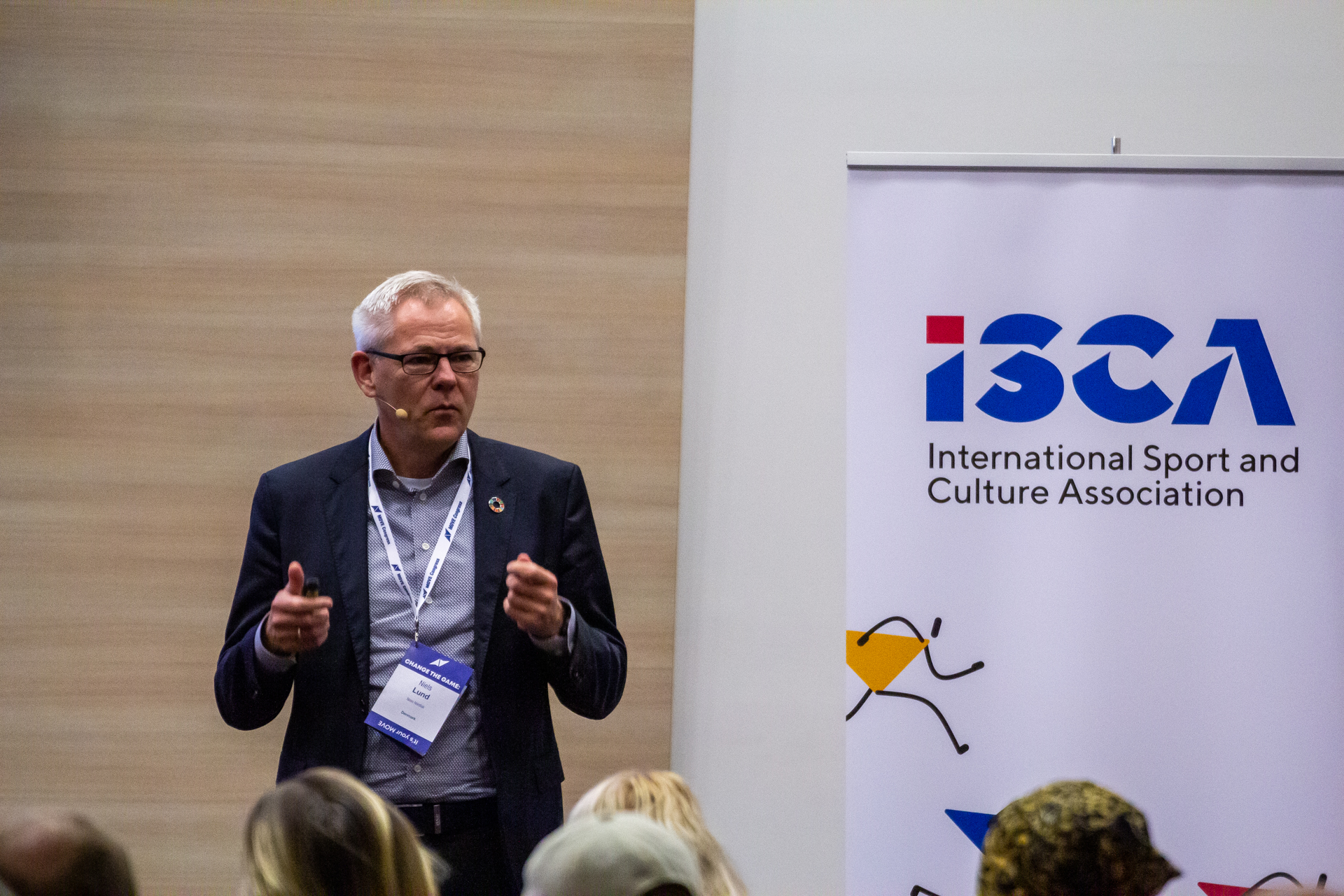Following on from successful fundraising workshops at the MOVE Congress in Rome (2014) and Copenhagen (2015), the “Opening new doors to funding and support” track at the MOVE Congress 2019 in Budapest presented an even more diverse picture of funding sources – from corporate to charities to emerging methods such as crowdfunding.
The track was led by ISCA Development Director and ASSOCIATIONWORLD CEO Kai Troll, who started the session by pointing out that grassroots sport and physical activity promoters need to be more proactive and look outside the box when it comes to seeking new partnerships and funds.
“We can work in an isolated way and do what we do, or collaborate in public-private partnerships and roll out our initiatives as multipliers. Isn’t it a no-brainer?”
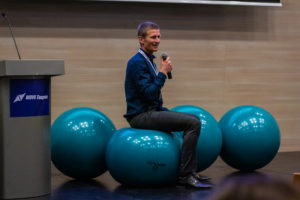 Fundraising is not only essential for many organisations to stay afloat, but also allows them to develop and break into new areas of work that they may not otherwise have the opportunity to try. Many of the participants in the room were familiar with EU funding opportunities, so ISCA Secretary General Jacob Schouenborg began with an overview of ISCA’s experience in working with EU projects and why they can be a good starting point for organisations to expand their networks and focus on developing new aspects of their work.
Fundraising is not only essential for many organisations to stay afloat, but also allows them to develop and break into new areas of work that they may not otherwise have the opportunity to try. Many of the participants in the room were familiar with EU funding opportunities, so ISCA Secretary General Jacob Schouenborg began with an overview of ISCA’s experience in working with EU projects and why they can be a good starting point for organisations to expand their networks and focus on developing new aspects of their work.
“Projects make you work with others and give you a plan,” he said. “Being awarded 65 EU grants has allowed us to find and reach out to partners from across sectors and across the world. This type of funding helps you invest in yourself and see yourself as a vehicle for innovation.”
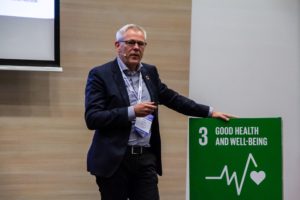 Niels Lund Vice President for Health Advocacy from Novo Nordisk, Denmark, Marianna Sikorowska, Grants Officer from the London Marathon Charitable Trust, UK, and Kristina Jasiunaite, Europe Director for World Bicycle Relief, Germany, gave exclusive insights into corporate funding, charities and online fundraising.
Niels Lund Vice President for Health Advocacy from Novo Nordisk, Denmark, Marianna Sikorowska, Grants Officer from the London Marathon Charitable Trust, UK, and Kristina Jasiunaite, Europe Director for World Bicycle Relief, Germany, gave exclusive insights into corporate funding, charities and online fundraising.
Whereas geographical boundaries and donors’ priorities can have a decisive impact on how they allocate funds, all of the speakers agreed that a similar approach can apply to all types of fundraising when organisations and individuals take their first steps.
Speaking the donor’s language is key, said Schouenborg, and Lund similarly advised to “get into the funder’s head and find out how they think. Make an effort to do your research.”
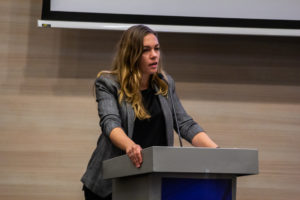 A project proposal and offer a win-win scenario for both the applicant and donor if it serves the interests of both organisations, Sikorowska said.
A project proposal and offer a win-win scenario for both the applicant and donor if it serves the interests of both organisations, Sikorowska said.
“Preparing a successful application that works for both sides is important,” she said. “It doesn’t have to be all about maintaining the funder’s focus area and goals, but finding innovative projects that fit into their frameworks.”
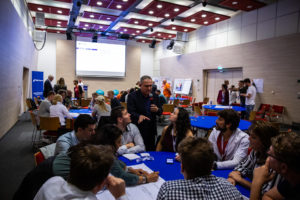 A panel discussion delving deeper into the speakers’ different perspectives rounded out the first part of the track, and the afternoon continued with a workshop led by Troll and the speakers, who mentored the participants in building hypothetical cases for support – but their valuable lessons learned will remain their secret takeaway from the MOVE Congress 2019!
A panel discussion delving deeper into the speakers’ different perspectives rounded out the first part of the track, and the afternoon continued with a workshop led by Troll and the speakers, who mentored the participants in building hypothetical cases for support – but their valuable lessons learned will remain their secret takeaway from the MOVE Congress 2019!
Photos by Márk Jelli
Opening new doors to funding and support
Following on from successful fundraising workshops at the MOVE Congress in Rome (2014) and Copenhagen (2015), the “Opening new doors to funding and support” track at the MOVE Congress 2019 in Budapest presented an even more diverse picture of funding sources – from corporate to charities to emerging methods such as crowdfunding. The track was led by ISCA Development Director and ASSOCIATIONWORLD CEO Kai Troll, who started the session by pointing out that grassroots sport and physical activity promoters need

